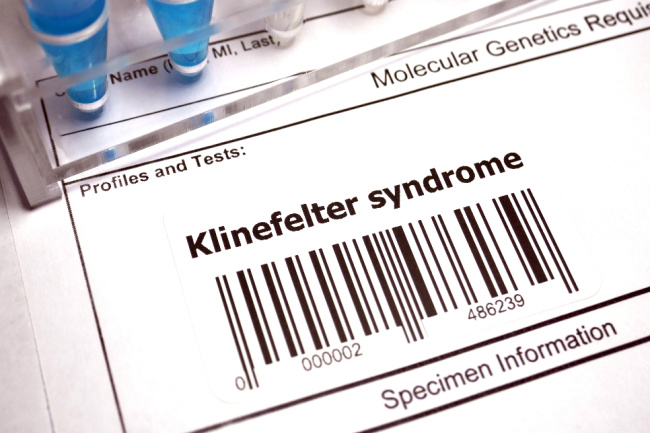
What is Klinefelter Syndrome? How might it affect sexual health?

Klinefelter syndrome is a disorder of sex development (DSD) in which a child who is genetically male (or whose sex assigned at birth is male) is born with an extra X chromosome.
When an embryo forms, its biological sex develops depending on chromosomes received from each parent. The mother contributes an X chromosome, while the father contributes either an X or Y chromosome. The Y chromosome contains the genetic data for male development, so male babies typically have an XY chromosome combination. (Females have an XX combination.)
In Klinefelter syndrome, the fetus receives an additional X chromosome. As a result, the baby’s chromosome makeup is XXY. The baby is considered to be biologically male, but the extra X chromosome affects the full development of male characteristics.
For most men with Klinefelter syndrome, the extra X chromosome is found in all cells. If the extra chromosome is present in only some of the cells, the boy is said to have mosaic Klinefelter syndrome. In rare cases, more than one extra X chromosome is found.
Experts estimate that Klinefelter syndrome affects about 1 in 650 males.
Learn more:
Because of the extra X chromosome, individuals with Klinefelter syndrome experience puberty differently from the way their peers do. For some, puberty is delayed or doesn’t occur.
For others, secondary sex characteristics don’t fully develop. For example, young adolescents with Klinefelter syndrome may have less facial hair than their peers. Their testicles and penis may be smaller than average. Some develop breasts (gynecomastia) and have higher-pitched voices.
As adults, individuals with Klinefelter syndrome typically have lower levels of testosterone. As a result, their sex drive might be diminished, and they could develop erectile dysfunction. They might also have less muscle mass and less energy than their peers or other individuals with penises.
These symptoms can often be treated with testosterone replacement therapy, with the guidance of a healthcare provider. Some individuals with Klinefelter syndrome start taking testosterone at puberty.
Learn more:
Infertility is another common issue for men with Klinefelter syndrome. Many do not produce sperm, and if they do, the amount is small.
However, this does not mean that men with Klinefelter syndrome cannot start families. If sperm are present in the testicles, specialists may be able to remove them with a biopsy needle. The sperm can then be injected into eggs.
Couples may also consider using sperm from a donor or adopting a child.
Men with Klinefelter syndrome may have other health conditions that affect sexuality, such as anxiety, depression, heart disease, diabetes, and high blood pressure.
If you have Klinefelter syndrome, be sure to see your healthcare provider regularly.
Resources
- American Journal of Psychiatry – Residents’ Journal - “A Case of Klinefelter Syndrome and Gender Dysphoria”
Moustafa, Yara W., M.B.B.Ch., Ph.D.
(Full-text. First published: May 1, 2017)
https://psychiatryonline.org/doi/10.1176/appi.ajp-rj.2017.120506 - Andrologia - “Sexual dysfunction in Klinefelter’s syndrome patients”
El Bardisi, H., et al.
(Abstract. First published: September 23, 2016)
https://onlinelibrary.wiley.com/doi/abs/10.1111/and.12670 - Endocrinology, Diabetes & Metabolism Case Reports via US Library of Medicine - “A case of Klinefelter syndrome with hypersexual desire”
Okolie, Kingsley, et al.
(Published: August 29, 2017)
https://www.ncbi.nlm.nih.gov/pmc/articles/PMC5581370/ - InterAct: Advocates for Intersex Youth - “FAQ: What is intersex?”
(Last updated: January 26, 2021)
https://interactadvocates.org/faq/ - Intersex Society of North America - “Klinefelter Syndrome”
(Last updated: 2008)
https://isna.org/faq/conditions/klinefelter/ - Journal of Sexual Medicine - “Erectile Dysfunction and Decreased Libido in Klinefelter Syndrome: A Prevalence Meta-Analysis and Meta-Regression Study”
Barbonetti, Arcangelo, MD, PhD, et al.
(Abstract. Published: May 20, 2021)
https://www.jsm.jsexmed.org/article/S1743-6095(21)00422-7/fulltext - Mayo Clinic - “Klinefelter syndrome”
(September 21, 2019)
https://www.mayoclinic.org/diseases-conditions/klinefelter-syndrome/symptoms-causes/syc-20353949 - MedlinePlus – Genetics Home Reference - “Klinefelter syndrome”
(Page last updated: September 8, 2020)
https://medlineplus.gov/genetics/condition/klinefelter-syndrome/#frequency - Medscape - “What are the sexual characteristics in Klinefelter syndrome?”
Defendi, Germaine L., MD, MS, FAAP
(March 23, 2020)
https://www.medscape.com/answers/945649-114934/what-are-the-sexual-characteristics-in-klinefelter-syndrome


